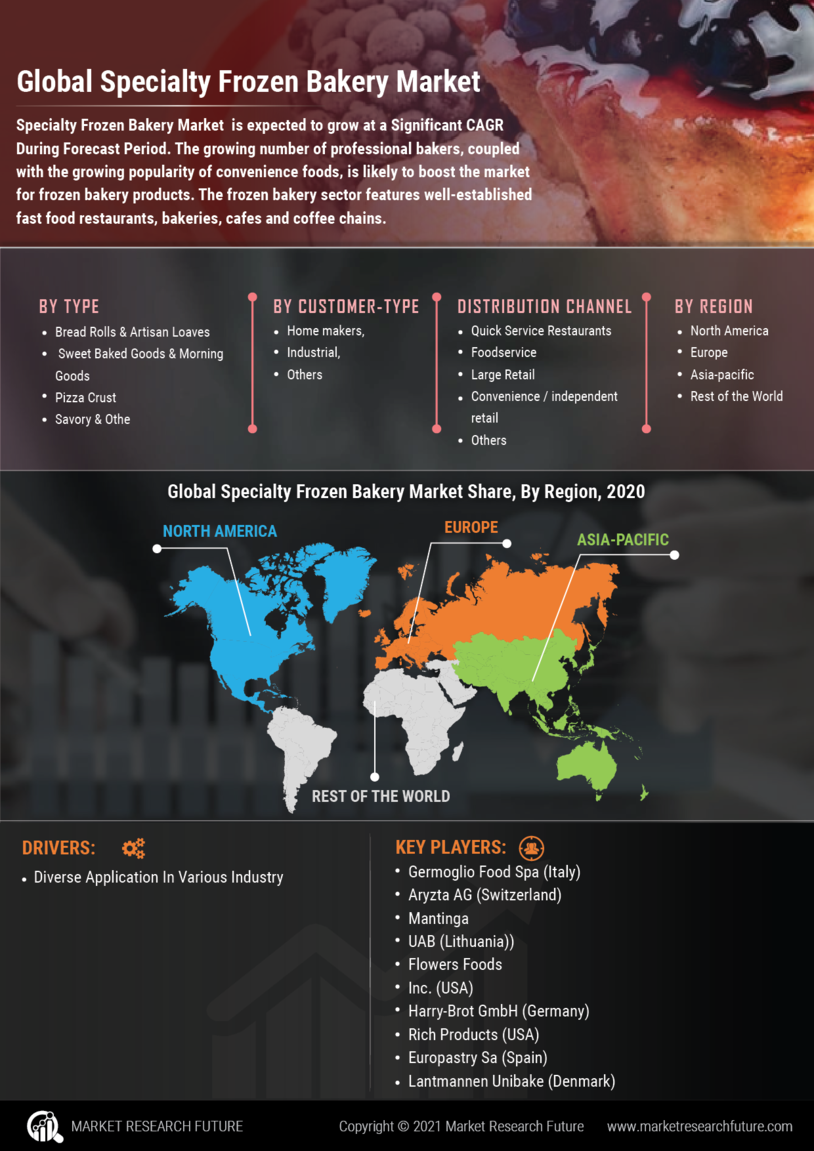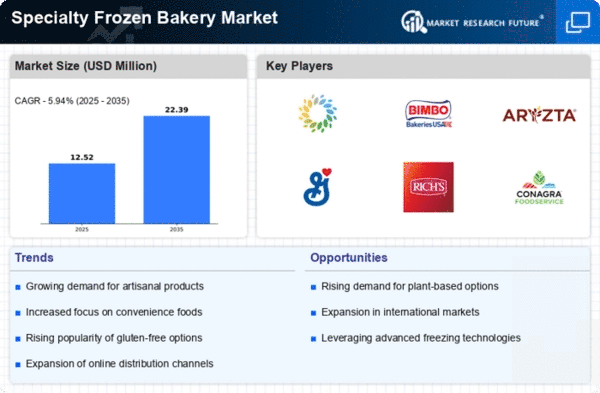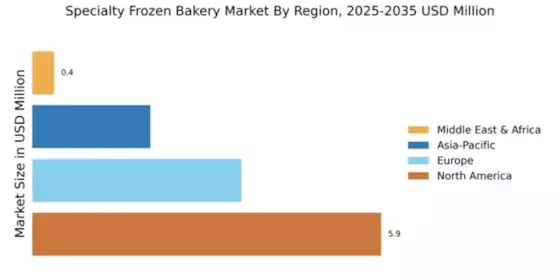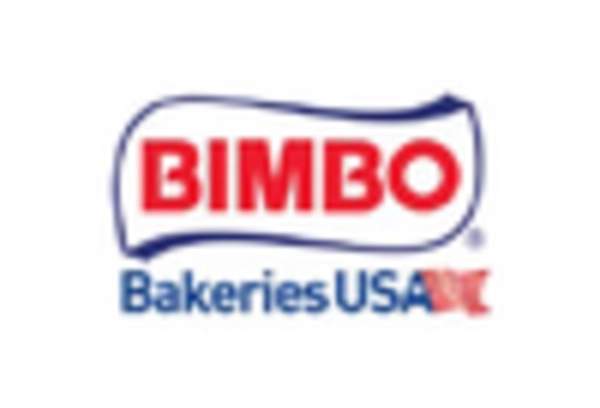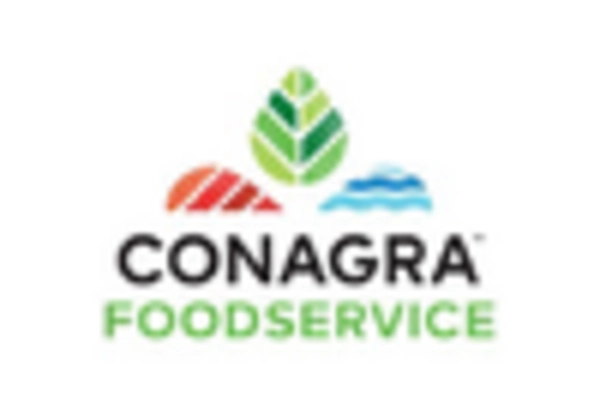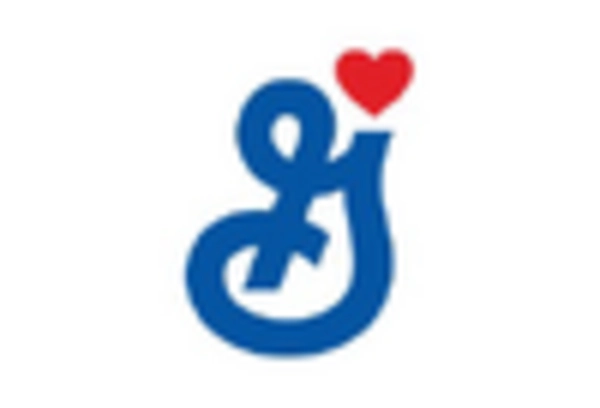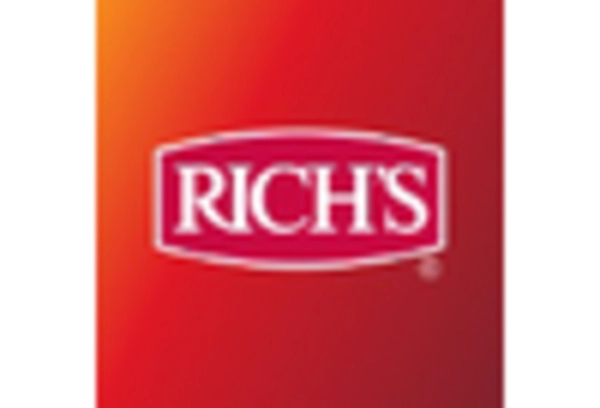Market Growth Projections
The Global Specialty Frozen Bakery Market Industry is poised for substantial growth, with projections indicating a market value of 3.82 USD Billion in 2024 and an anticipated increase to 9.11 USD Billion by 2035. This growth trajectory suggests a compound annual growth rate of 8.22% from 2025 to 2035, driven by various factors including rising consumer demand for convenience foods, health trends, and technological advancements. The market's expansion reflects a broader shift in consumer behavior towards frozen bakery products, which are increasingly perceived as viable alternatives to fresh baked goods. As such, stakeholders in the industry are likely to capitalize on these trends to enhance their market presence.
Health and Wellness Trends
The Global Specialty Frozen Bakery Market Industry is increasingly influenced by health and wellness trends, as consumers become more health-conscious. There is a rising demand for products that are organic, gluten-free, and low in sugar, prompting manufacturers to adapt their offerings accordingly. For instance, brands are introducing frozen bakery items that incorporate whole grains and natural ingredients, appealing to health-oriented consumers. This shift not only caters to dietary restrictions but also aligns with the broader trend of clean eating. As a result, the market is expected to grow significantly, with projections indicating a value of 9.11 USD Billion by 2035.
Expansion of Distribution Channels
The Global Specialty Frozen Bakery Market Industry benefits from the expansion of distribution channels, which enhances product accessibility for consumers. Retailers are increasingly incorporating frozen bakery sections in supermarkets and convenience stores, making these products more visible and available. E-commerce platforms are also emerging as significant channels for frozen goods, allowing consumers to purchase specialty items from the comfort of their homes. This diversification in distribution not only caters to changing shopping habits but also supports the anticipated market growth, with a projected compound annual growth rate of 8.22% from 2025 to 2035, reflecting the increasing popularity of frozen bakery products.
Rising Demand for Convenience Foods
The Global Specialty Frozen Bakery Market Industry experiences a notable surge in demand for convenience foods, driven by the fast-paced lifestyle of consumers. As individuals seek quick meal solutions without compromising on quality, frozen bakery products such as pre-baked bread and pastries gain traction. This trend is particularly evident in urban areas where time constraints are prevalent. The market is projected to reach 3.82 USD Billion in 2024, reflecting a growing preference for ready-to-eat options. Consequently, manufacturers are innovating to provide a diverse range of frozen bakery items that cater to various dietary preferences, thereby expanding their consumer base.
Consumer Preference for Artisan Products
The Global Specialty Frozen Bakery Market Industry is witnessing a shift in consumer preference towards artisan and gourmet frozen bakery products. As consumers seek high-quality, unique flavors and textures, manufacturers are responding by offering artisanal frozen breads, pastries, and desserts. This trend is particularly pronounced among millennials and Gen Z, who prioritize quality and authenticity in their food choices. The rise of social media also plays a role in promoting these products, as visually appealing items gain traction online. This growing demand for artisan offerings is likely to contribute to the overall expansion of the market, as brands innovate to meet these evolving consumer expectations.
Technological Advancements in Production
Technological advancements play a crucial role in shaping the Global Specialty Frozen Bakery Market Industry. Innovations in freezing techniques and packaging solutions enhance product quality and shelf life, which are vital for maintaining consumer satisfaction. For example, advancements in cryogenic freezing allow for better preservation of flavor and texture in frozen baked goods. Additionally, automation in production processes increases efficiency and reduces labor costs, enabling manufacturers to scale operations effectively. These technological improvements not only streamline production but also contribute to the overall growth of the market, as companies can meet rising consumer demands more efficiently.
